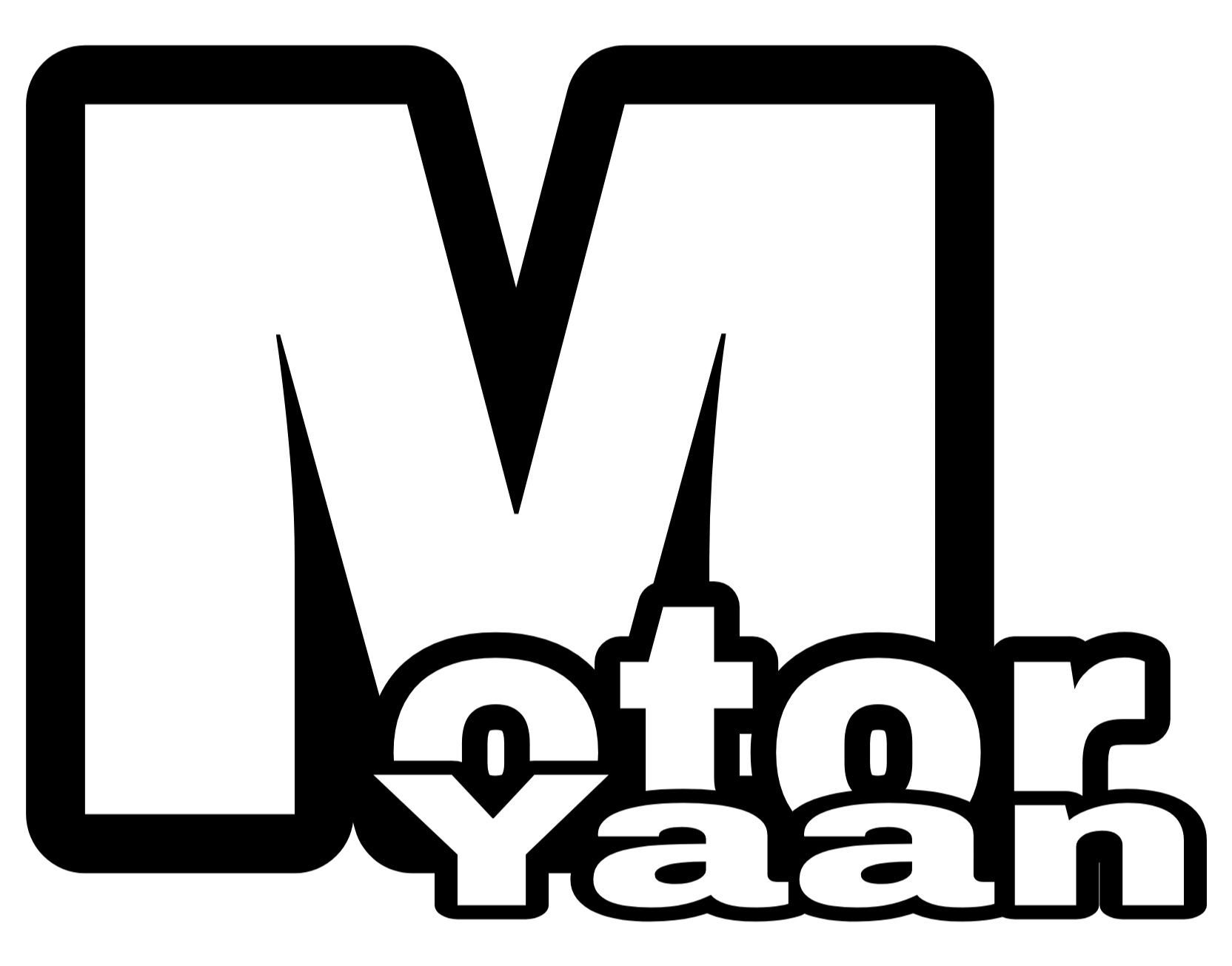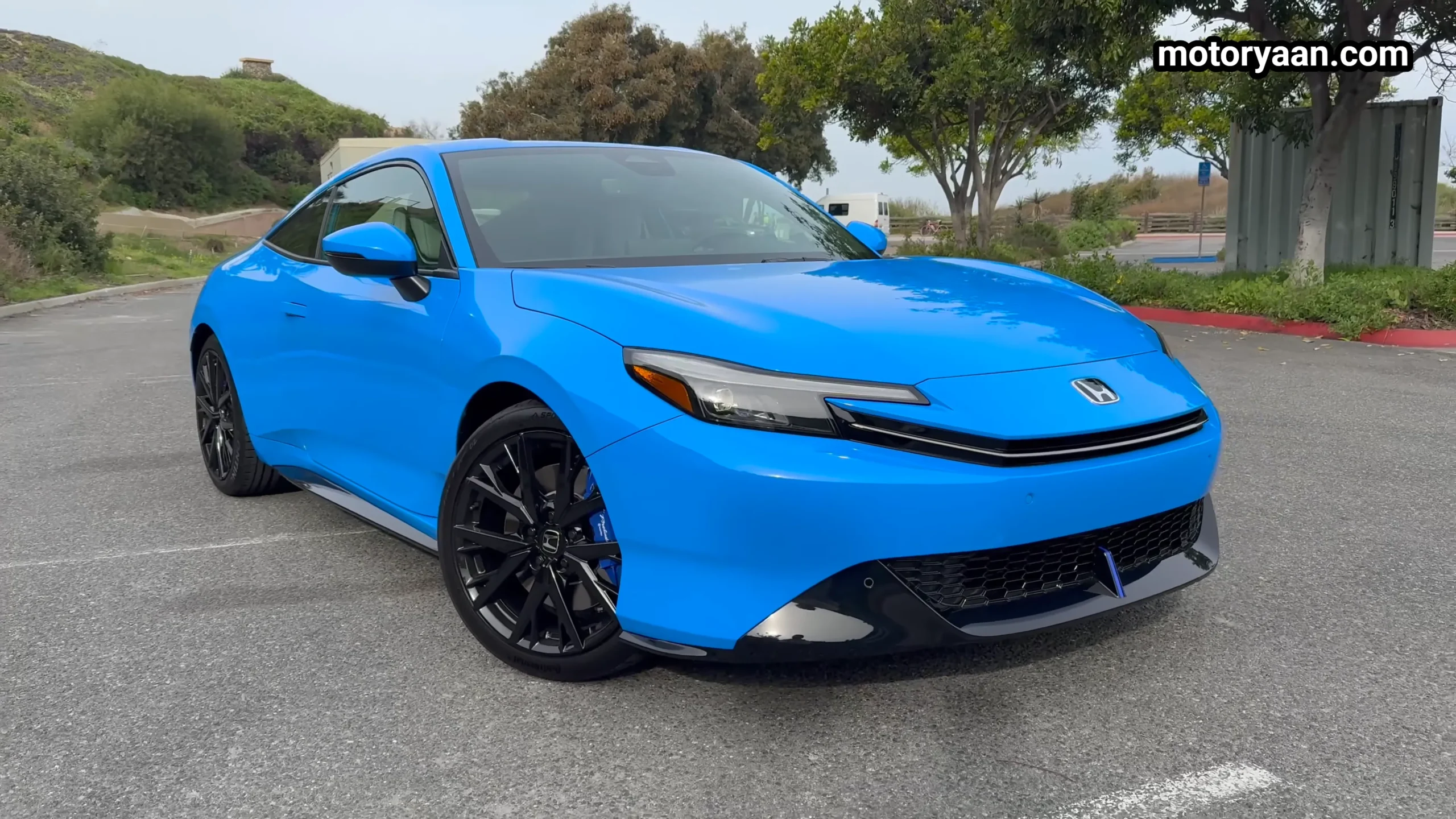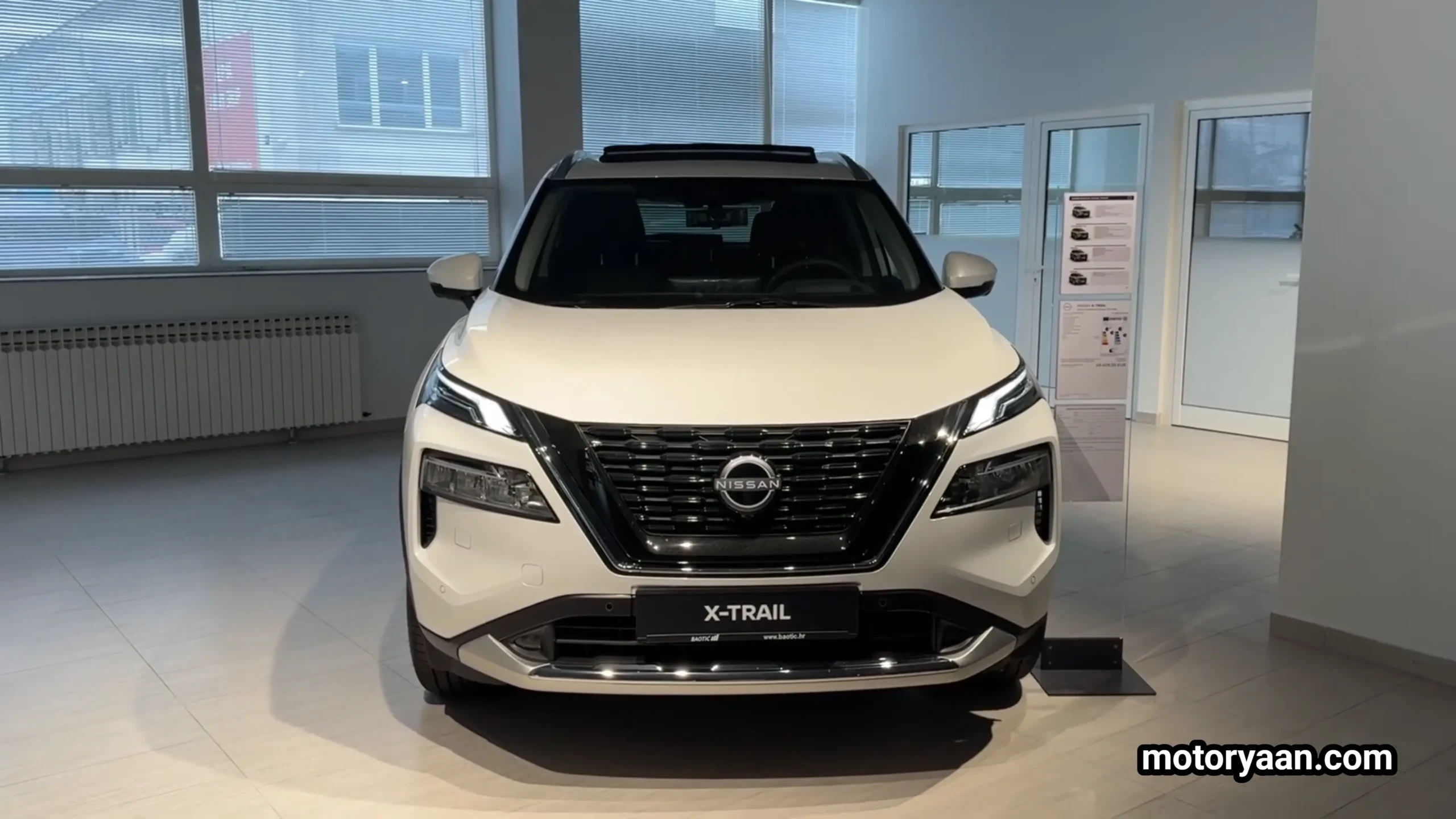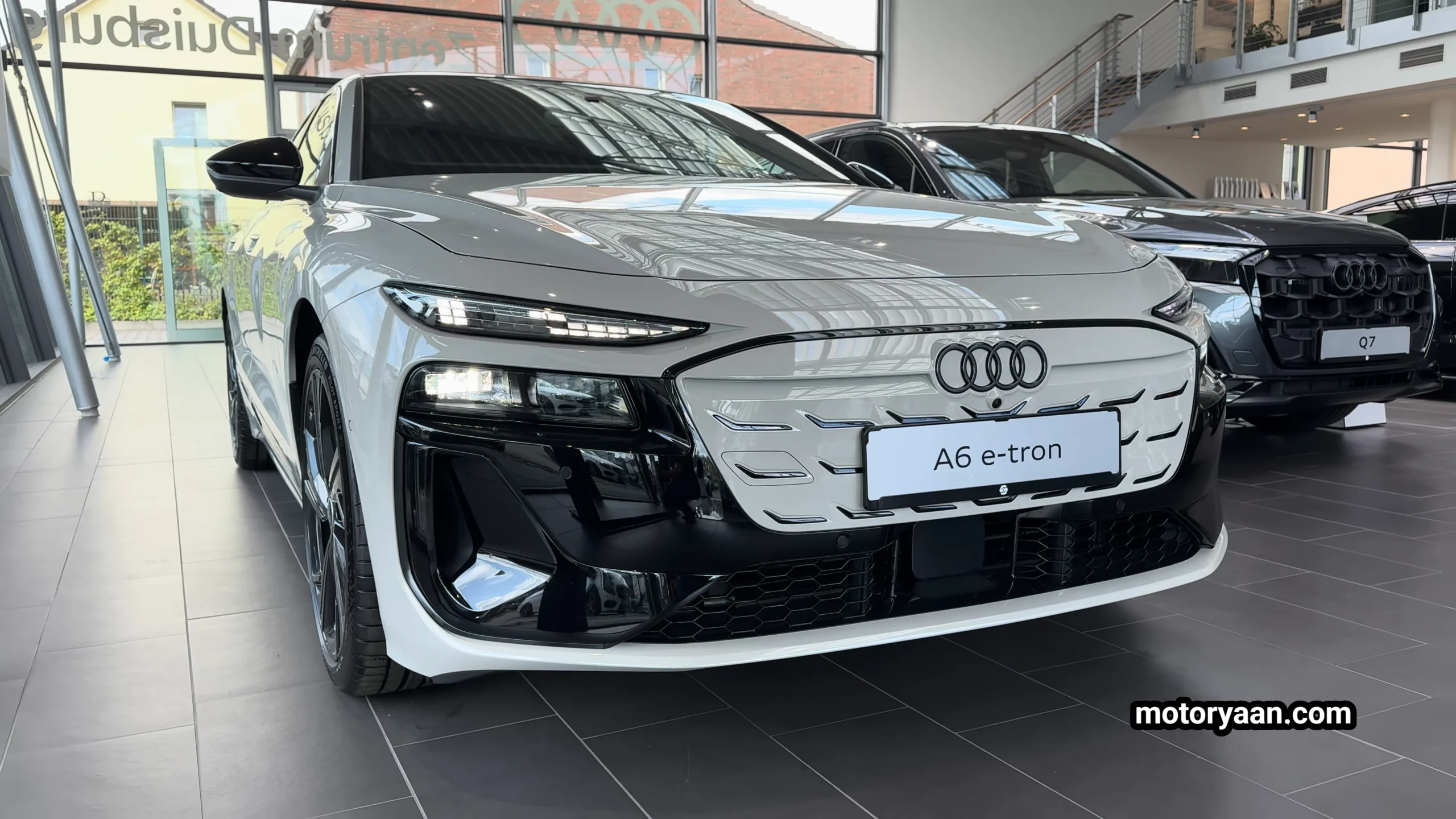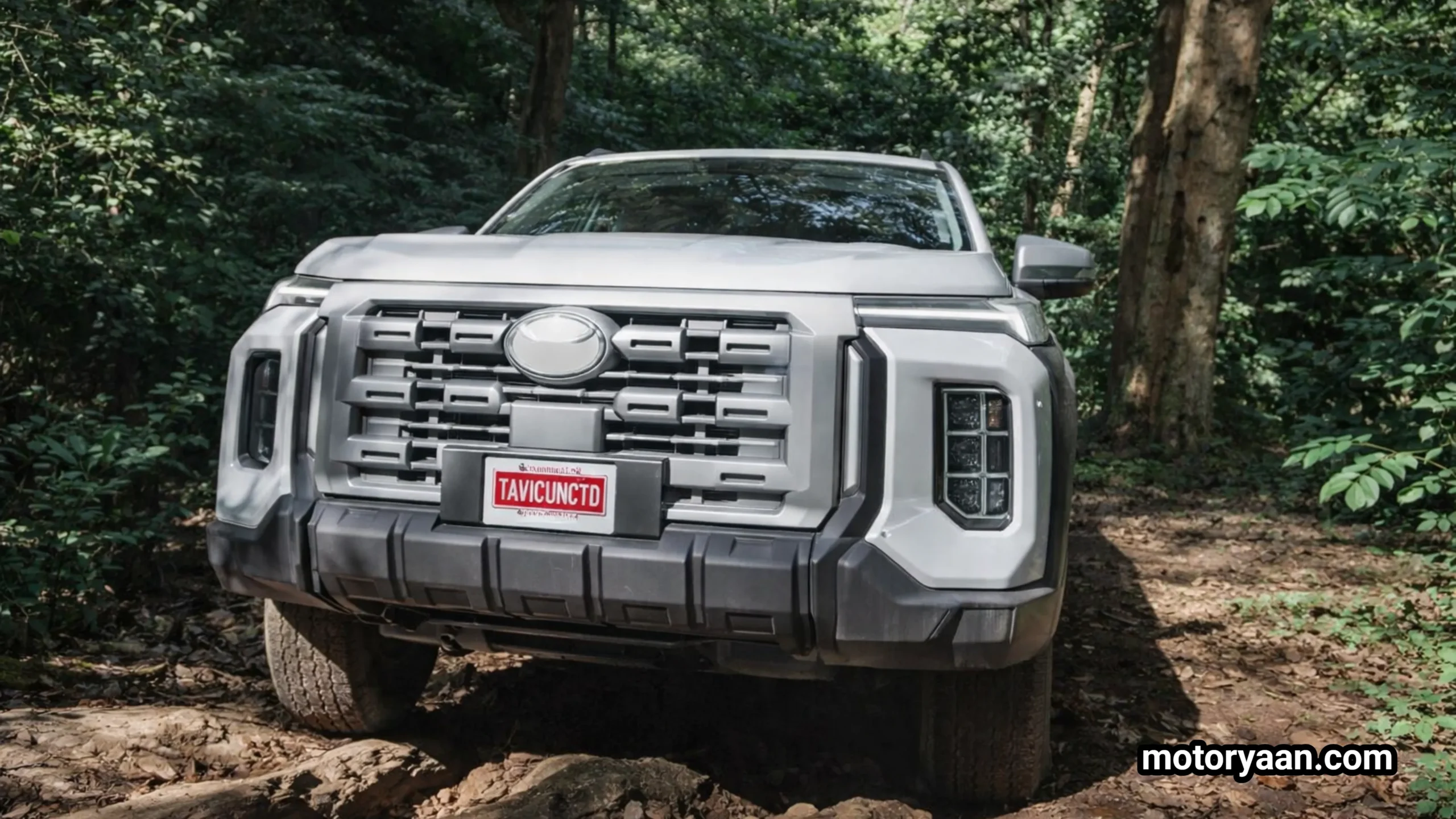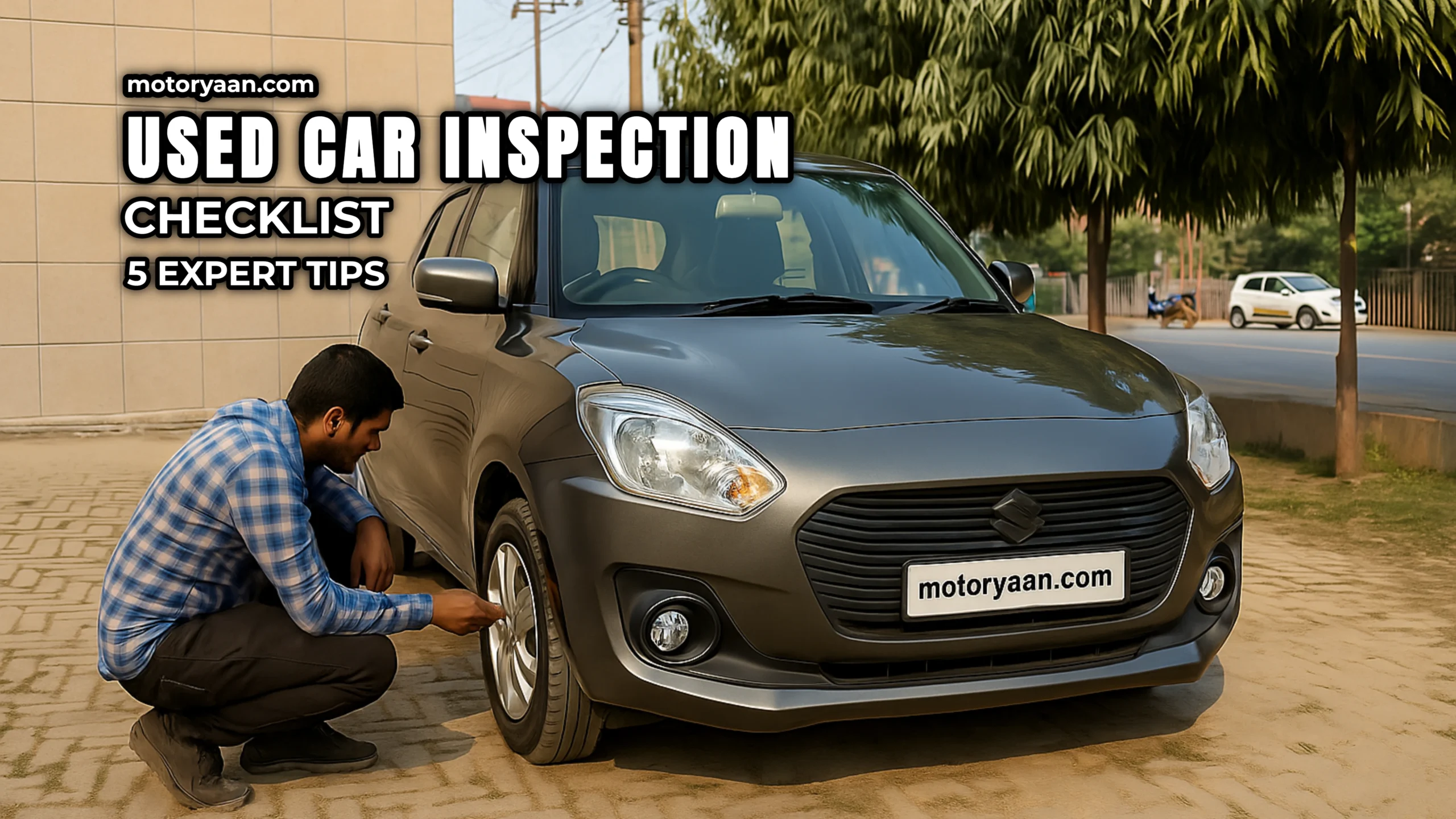2025 Nissan Armada Pro-4X
In this Armada, Nissan mounted a GT-R-adjacent engine about three feet higher and wrapped it in body-on-frame construction. They’re charging about $80,000, and they’ve created a vehicle that requires justification to friends, family, and your own financial anxiety.
But there are six things you need to know before that justification begins, because the marketing materials won’t tell you about the driver assist downgrade, the badge perception tax, and why this drives nothing like a crossover.
The ProPilot Assist Downgrade They Don’t Want You to Notice
This Armada Pro-4X gets ProPilot Assist 1.1, while Platinum trims get ProPilot Assist 2.1. That version number difference costs you hands-free driving capability, and here’s how that cascades into real-world situations:
1.1 cannot follow gentle highway curves without constantly beeping at you.
It’s not calibration, it’s limitation.
The system physically cannot maintain lane position through gradual bends that human drivers handle unconsciously.
Most Pro-4X owners disable the steering assist within the first month. They keep adaptive cruise control because that actually works, and they turn off everything else because living with constant auditory harassment isn’t worth the theoretical convenience.
This isn’t anecdotal. It is pattern behavior across owner forums.
But here’s the real problem:
You’re spending nearly $80,000 on a vehicle with deliberately inferior driver assistance tech. Nissan penalizes the off-road trim while competition like the Sequoia TRD Pro and Expedition Tremor offer full driver assist suites.
This isn’t segmentation. It is punishment for buying the capability trim.
Even with off-road capabilities, you’re still doing most of your driving on highways where this tech matters the most.
The Badge Perception Tax (Yes, It’s Real and Expensive)
Spending $80,000 on a Nissan creates social friction that spending $85,000 on a Sequoia or Expedition might not. This isn’t about capability. It’s about:
Market perceptions
Resale math
The psychological cost of being a contrarian
Example:
Your neighbor buys a Tahoe for $85,000.
You buy an Armada Pro-4X for $80,000.
After 5 years:
Tahoe retains 62 percent of its value
Armada retains 53 percent
So you didn’t save money. You lost it in resale.
Meanwhile, Lexus products command 15 to 20 percent better resale after three years, not from capability but from brand perception.
The Armada has a better engine and a scrappy underdog energy, but the market doesn’t respect scrappy underdogs. Your friends and family will question your decision. You’ll need an explanation prepared, and “I valued capability over badge prestige” only works if you’re psychologically comfortable being correct against market consensus.
And this is the badge anxiety tax.
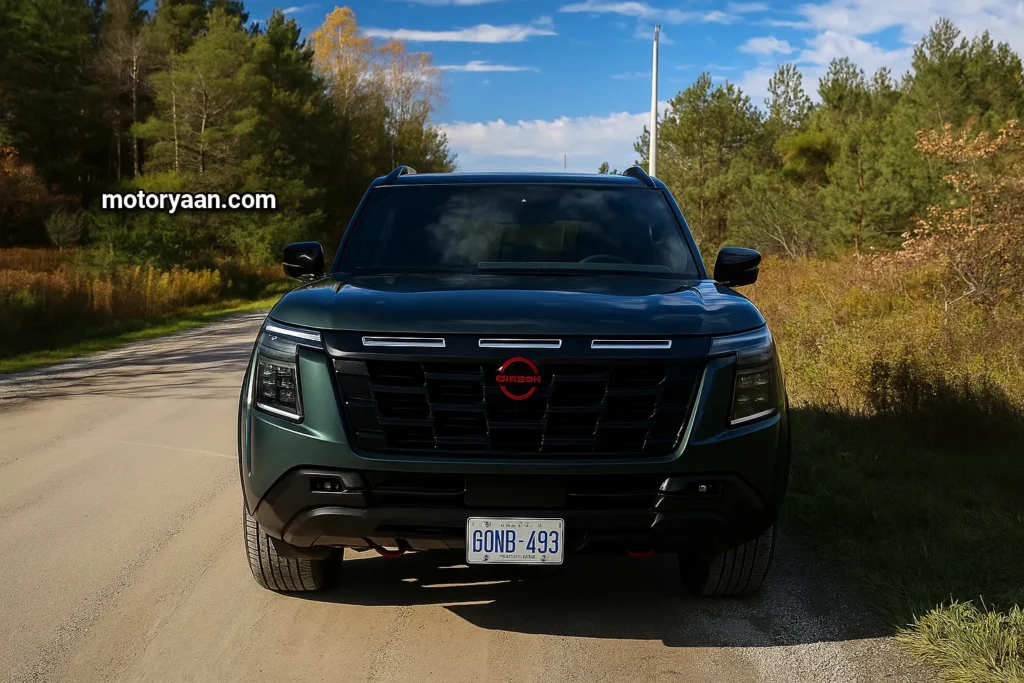
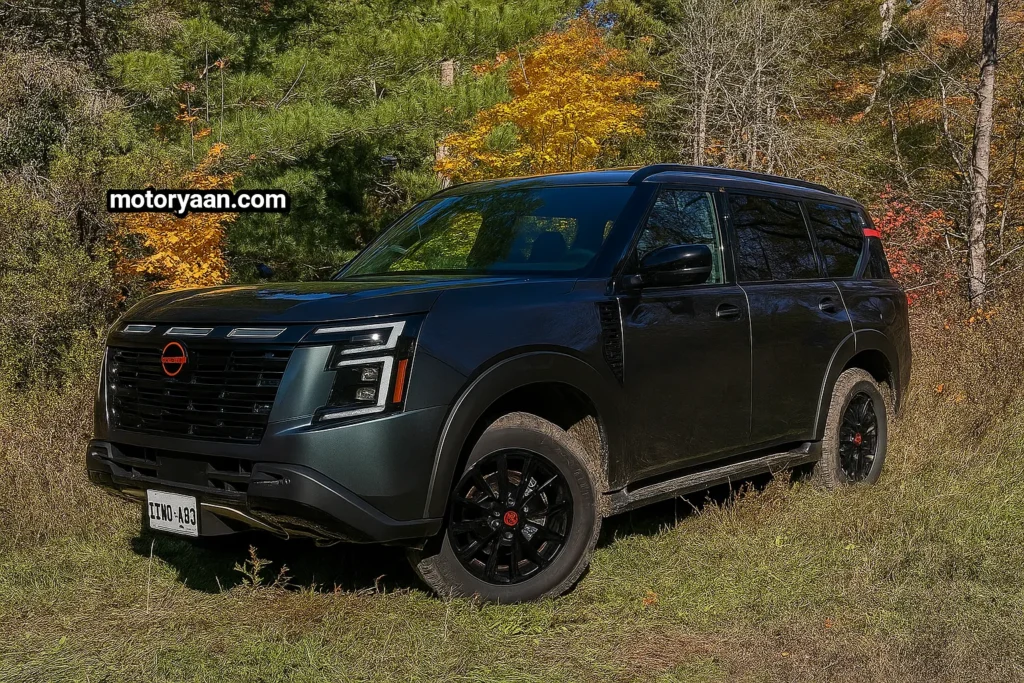
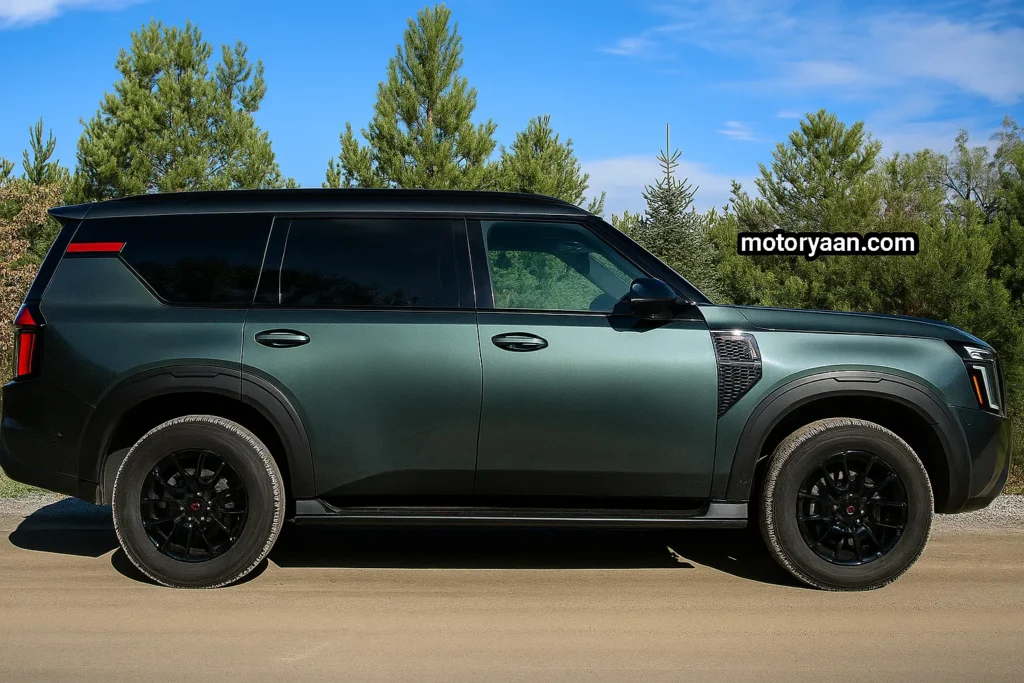
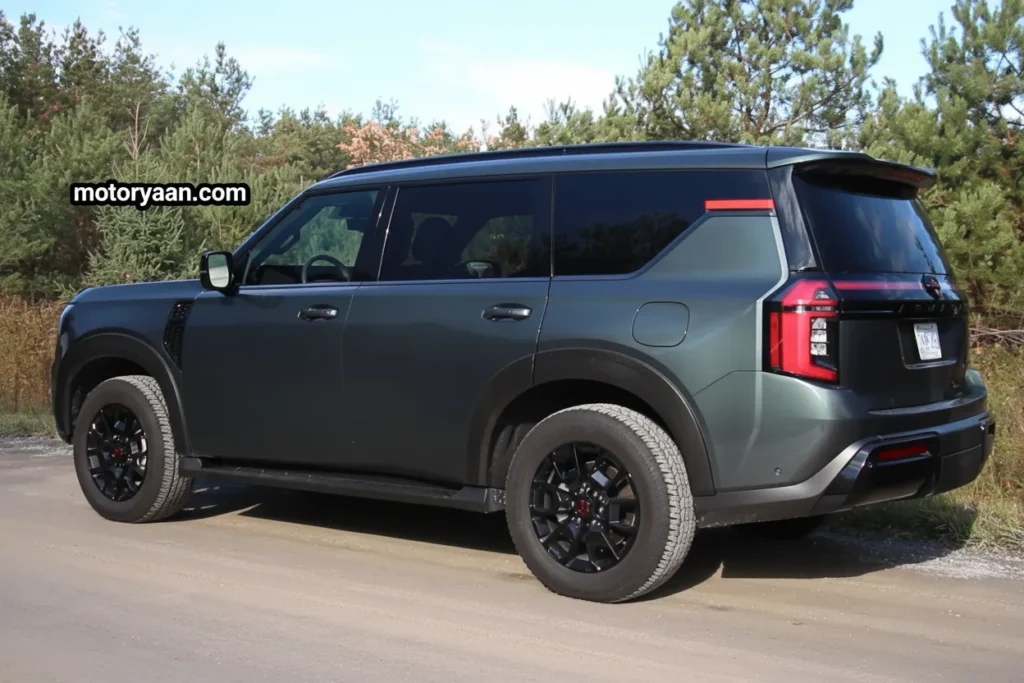
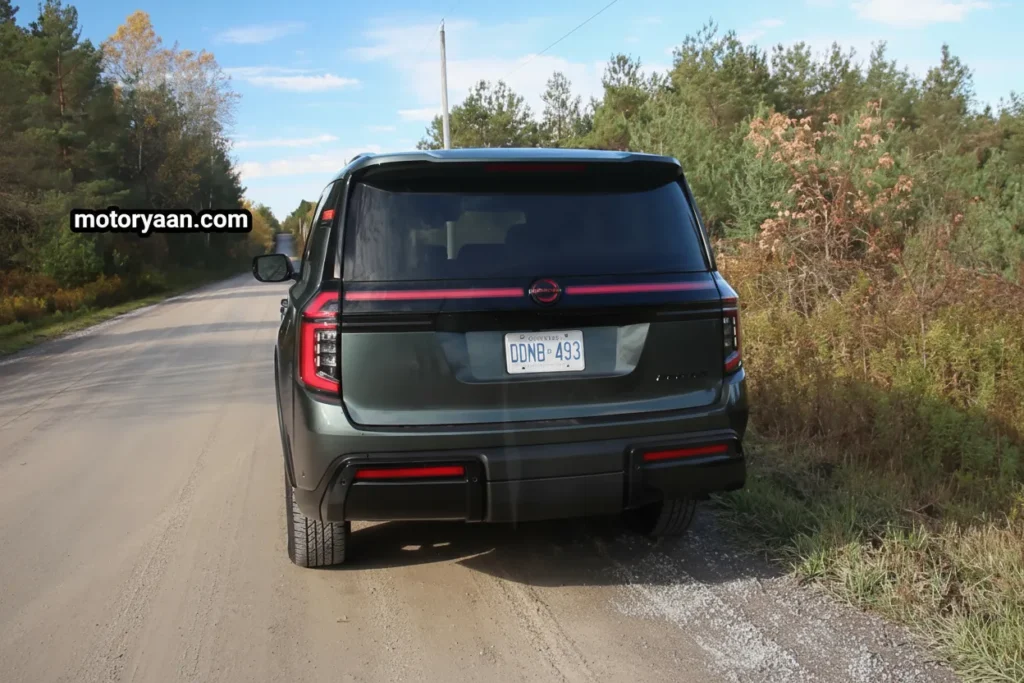
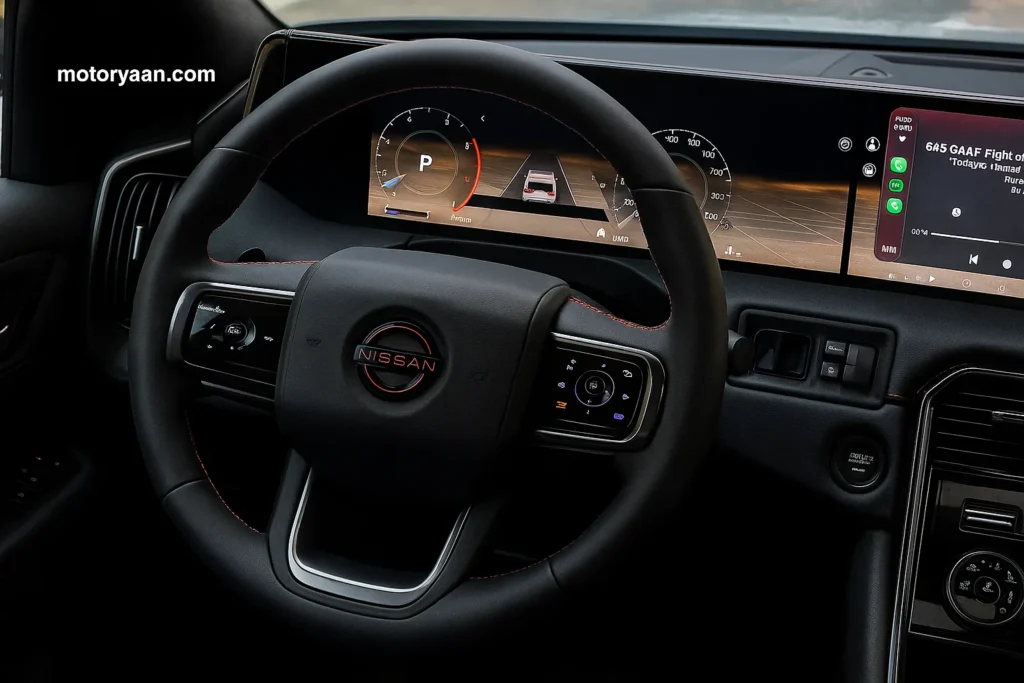
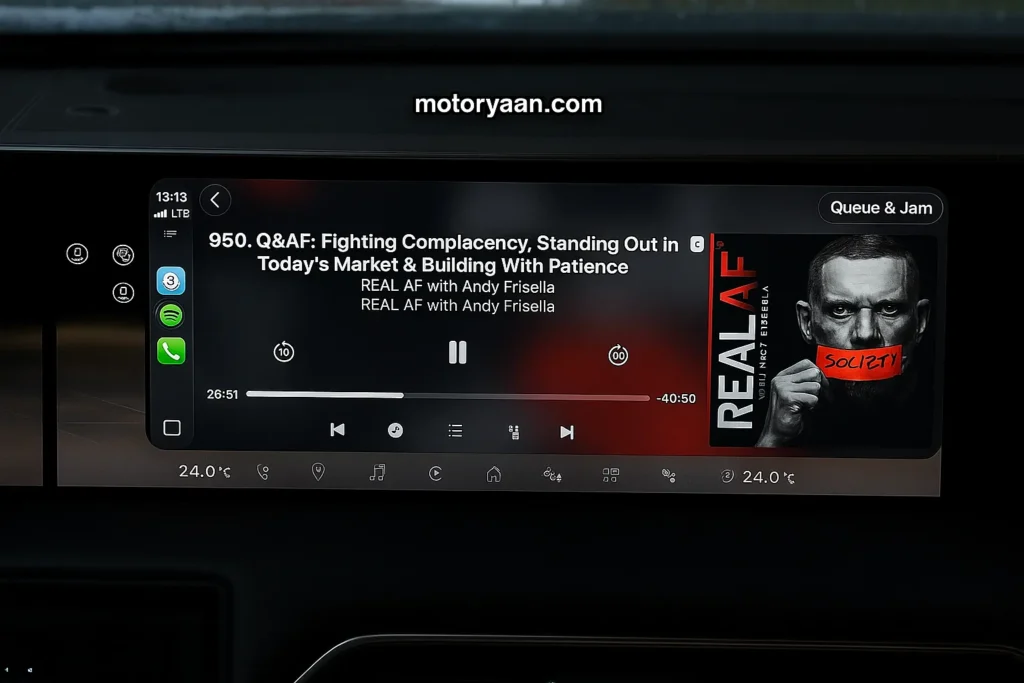
This Is Not a Crossover (and That’s Why It Drives Differently)
Crossovers and body-on-frame SUVs follow two different philosophies.
Crossover Philosophy
Over-damped suspension
Isolate cabin from chassis dynamics
Hide weight transfer
Lie to your inner ear about mass
Armada Philosophy
Body-on-frame
Adaptive air springs and dampers
Communicate real weight transfer
No pretending to be lighter than it is
You accelerate and you feel the squat.
You brake and you feel the dive.
You corner and you feel the load transfer.
This honesty creates surprising confidence, because the chassis tells you the truth. Crossovers hide weight until you exceed their envelope, then physics appears violently.
The Armada rewards drivers who understand vehicle dynamics and that’s the way it should be.
What the Armada Pro-4X Really Feels Like to Drive
Here’s the integrated experience of piloting 6,000 pounds shaped like a shipping container.
Acceleration
Smooth, inevitable, unstoppable.
516 lb-ft arrives like a freight train running on schedule.
0 to 60 in the low six-second range. Quick and hilarious.
Transmission
The nine-speed automatic:
Holds gears intelligently
Upshifts without drama
Rev matches downshifts
Steering
Slightly numb on-center
Predictable off-center
You always know where the front tires are pointing
Body Control
Present but controlled body roll
Air springs and adaptive dampers handle the mass
Sport mode firms things
Off-road mode raises the suspension
Brakes
Brake-by-wire with firm pedal feel.
No drama stopping 6,000 pounds, just physics and proper clamping force.
Cabin and Ergonomics
High seating position
Commanding visibility
Proper telescoping wheel
Google built-in works properly
Third row fits actual humans
Overall:
It’s rapid without pretending to be sporty, and capable without athletic delusion.
Owner Insights: The Real World Intel That Matters
ProPilot 1.1
Beeps constantly
Steering assist disabled within a month
Real world workaround:
Turn off everything except adaptive cruise
Fuel Consumption
Owners see 20 to 22 mpg highway
EPA says 18 mpg
Eco mode with ProPilot at 65 to 70 mph delivers real efficiency
Twin turbo V6 is far more efficient than the old V8
Wireless Charging
Overheats iPhones
Owners found it is an iOS bug, not Nissan hardware
Restart your phone to fix it
Aftermarket Support
Shares platform with global Patrol
70 years of Australian aftermarket parts bolt on
Previous Armadas had limited upgrade paths
This one has international compatibility
Smart Spec Strategy
Base Pro-4X plus Premium Package
Skip captain’s chairs unless you have exactly two kids
Two tone paint adds $1,000 for aesthetics only
Expect about $80,000 out the door
The GT-R Engine Question Everyone Asks (and Gets Wrong)
This 3.5L twin turbo V6 shares the same architecture as the GT-R:
Twin turbos
Direct injection
Variable valve timing
But architecture is not destiny.
GT-R Mission
Violent acceleration
Maintain power to redline
Prioritize throttle response over smoothness
Armada Mission
Deliver progressive torque from low RPM
Prioritize linear power
Maintain smoothness while towing
Highway cruising with 8,500 pounds
This is not GT-R compromise. It is GT-R adaptation.
Same engineering foundation, different purpose.
If you want 516 lb-ft at altitude with three tons of family and cargo, this is exactly what you need. It didn’t get worse. It got reassigned.
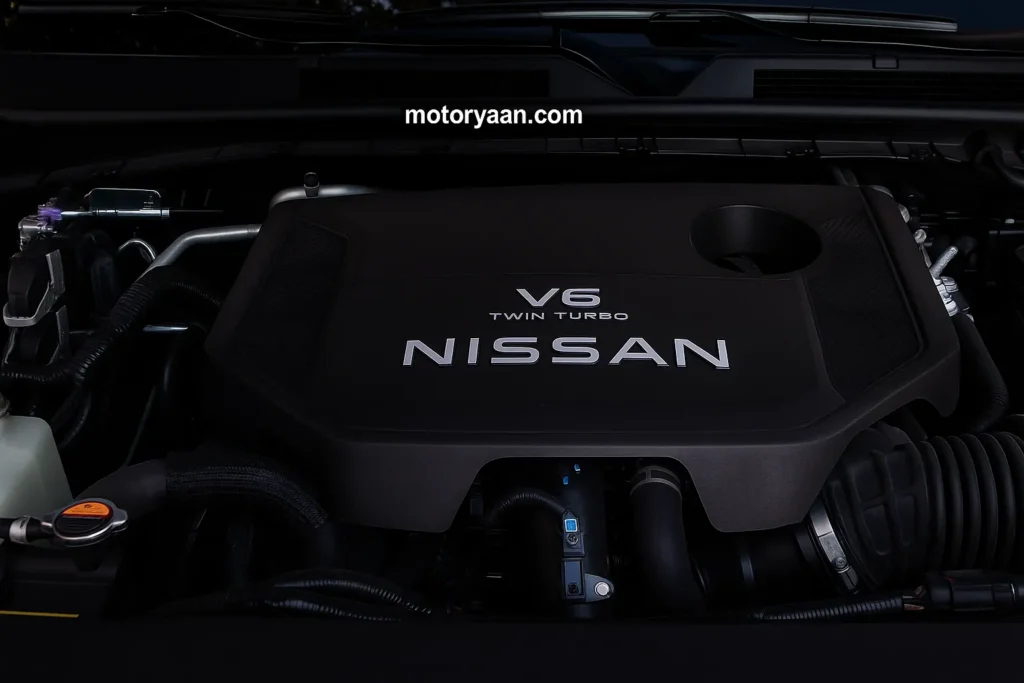
Final Verdict: Who Should Buy the 2025 Nissan Armada Pro-4X
Before buying, know the six truths:
ProPilot downgrade
Badge anxiety tax
Body-on-frame engagement versus crossover isolation
Honest mass management driving feel
Owner reported quirks and strengths
The GT-R engine misconception
Buying one will require a bit of justification to your friends, your family, and your own financial anxiety.
But if you value substance over status and capability over badge prestige, the justification exists.
Nissan built this for you and approximately 17 other people nationwide.
2025 Nissan Armada Pro-4X Review – Frequently Asked Questions
1. Why is the ProPilot Assist system considered a downgrade on the 2025 Nissan Armada Pro-4X?
The Armada Pro-4X receives ProPilot Assist 1.1 instead of the superior 2.1 system found on the Platinum trim. This downgrade removes hands-free capability and causes issues such as constant beeping, difficulty following gentle highway curves, and limited steering assistance. Most owners end up disabling everything except adaptive cruise control.
2. What is the badge perception tax mentioned in the review?
Spending nearly $80,000 on a Nissan brings psychological and resale disadvantages compared to buying a Toyota or Ford at similar prices. For example, after five years, a Tahoe retains 62% of its value while the Armada retains around 53%. This creates what the review calls a “badge-anxiety tax,” where buyers must justify choosing capability over brand prestige.
3. How does the 2025 Nissan Armada Pro-4X drive compared to crossovers?
Unlike crossovers that hide weight transfer, the Armada’s body-on-frame platform, adaptive air suspension, and honest load feedback create a confident and predictable driving feel. You feel squat during acceleration, dive while braking, and real weight transfer in corners—making it more engaging and honest than typical crossovers.
4. What real-world fuel economy do owners get from the Armada Pro-4X?
Owners consistently report 20–22 mpg on the highway, which is better than the EPA-rated 18 mpg. When using Eco mode, ProPilot (adaptive cruise only), and maintaining 65–70 mph, the twin-turbo V6 delivers surprisingly efficient long-distance performance.
5. Does the 2025 Nissan Armada Pro-4X really use a GT-R–related engine?
Yes, the 3.5L twin-turbo V6 shares fundamental architecture with the GT-R, including twin turbos, direct injection, and variable valve timing. However, the Armada’s tune focuses on smooth, progressive torque and towing capability rather than the violent, high-revving personality of the GT-R. It’s GT-R engineering adapted—not compromised.
6. What upgrades and aftermarket support does the Armada Pro-4X have?
The new Armada now shares more DNA with the global Nissan Patrol, which means far better access to aftermarket parts, especially from Australian off-road suppliers. This is a big improvement over the previous U.S.-specific model with limited upgrade options.
7. What is the recommended smart spec or ideal configuration?
The smart-buy configuration recommended in owner communities is the base Pro-4X with the Premium Package. Avoid captain’s chairs unless you have exactly two kids, and skip the two-tone paint since it adds $1,000 with no functional benefit. The typical real-world out-the-door pricing lands around $80,000.
